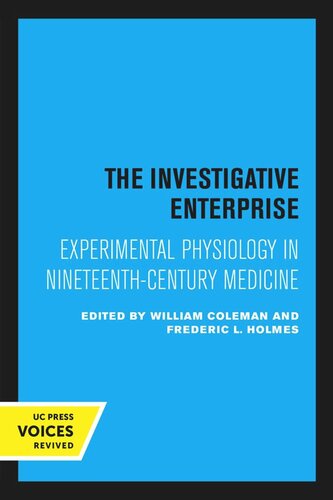

Most ebook files are in PDF format, so you can easily read them using various software such as Foxit Reader or directly on the Google Chrome browser.
Some ebook files are released by publishers in other formats such as .awz, .mobi, .epub, .fb2, etc. You may need to install specific software to read these formats on mobile/PC, such as Calibre.
Please read the tutorial at this link: https://ebookbell.com/faq
We offer FREE conversion to the popular formats you request; however, this may take some time. Therefore, right after payment, please email us, and we will try to provide the service as quickly as possible.
For some exceptional file formats or broken links (if any), please refrain from opening any disputes. Instead, email us first, and we will try to assist within a maximum of 6 hours.
EbookBell Team

5.0
28 reviewsThe seven distinguished contributors to this volume illuminate not only the history of the biological and medical sciences but also the relationship between institutes and ideas which characterized the explosion of scientific investigation, especially in Germany. Besides William Coleman and Frederic L. Holmes, they include Robert G. Frank, Jr., Timothy Lenoir, John E. Lesch, Kathryn M. Olesko, and Arlene M. Tuchman. Scientific investigation was not new to the nineteenth century, but it was during that period that it began to be carried out on a scale large enough to become crucial to the welfare of nations. Much remains to be learned about how the forms of organization characteristic of the modern investigative enterprise originated. This book explores such questions in relation to one of the dominant experimental sciences of the century, physiology. Each author shows, through the examination of a specific institute or a specific subject, that the interplay between research, pedagogy, personal vision, and state or public interests can be studied to particular advantage in localized settings.